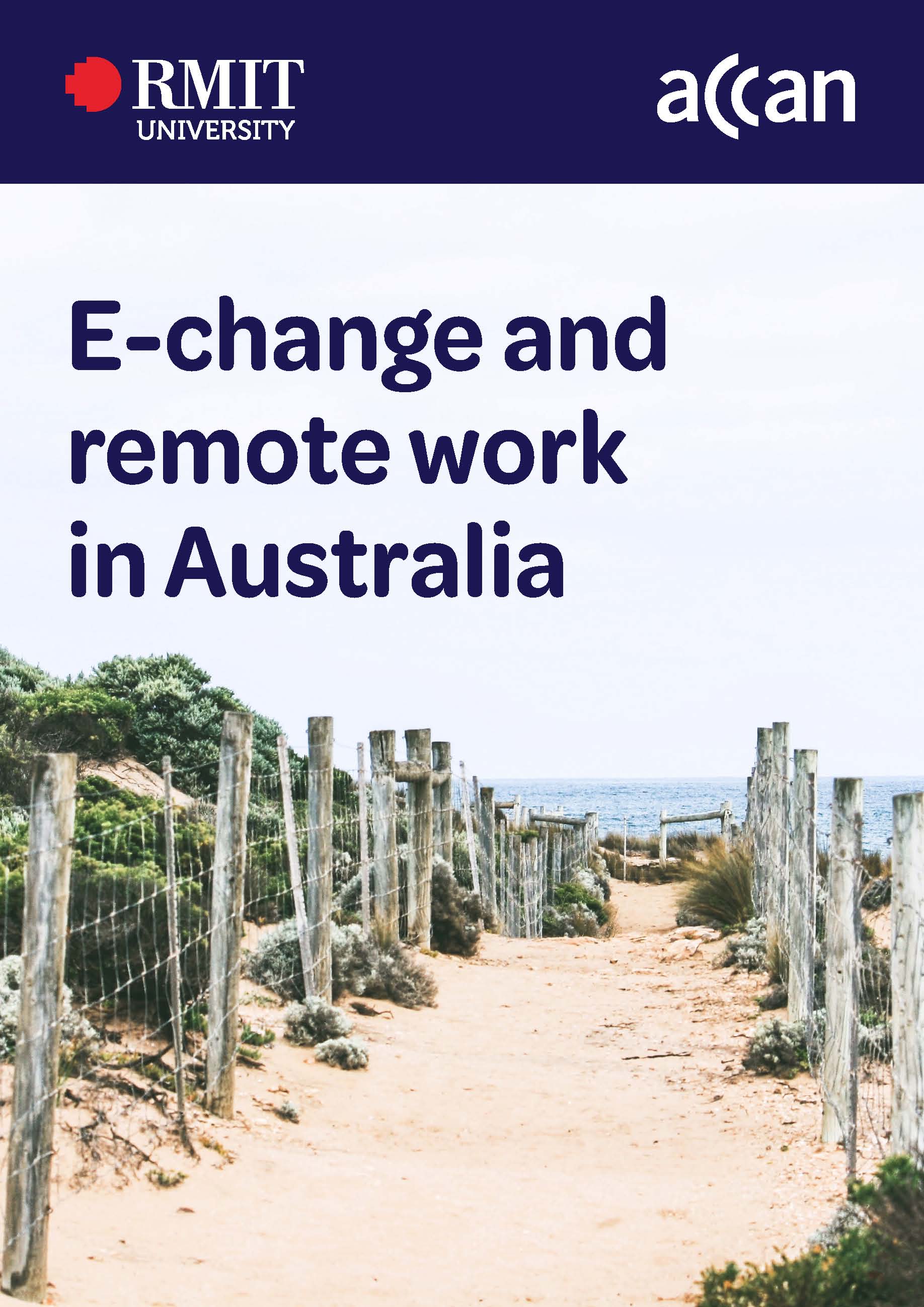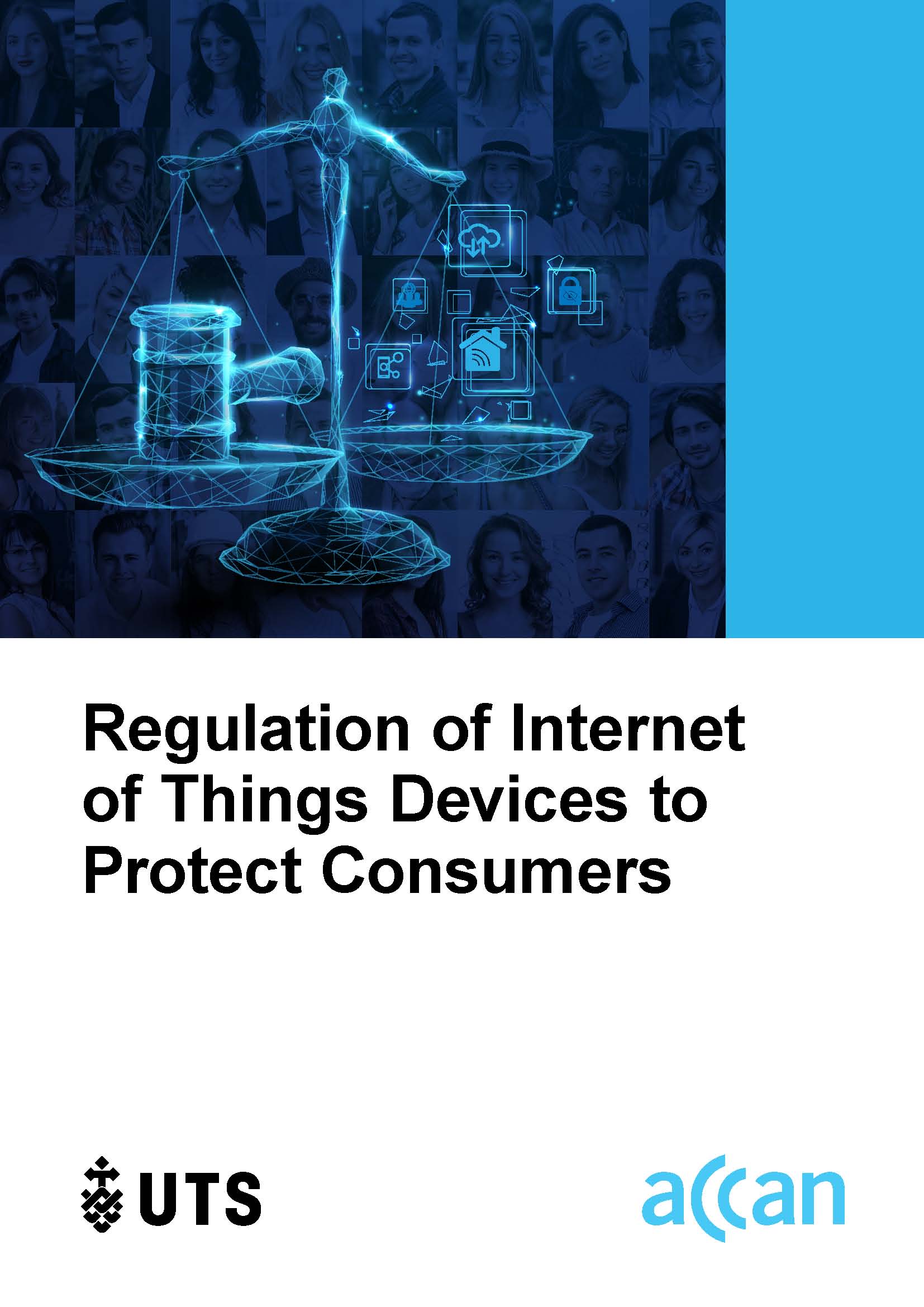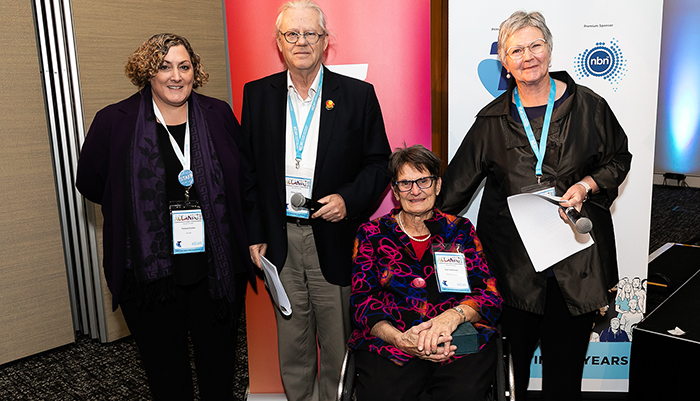- Details

Curtin University
Approaches to the accessibility of subscription versus free to access Australian video on demand platforms have been evaluated with research gathering new insights from consumers with disabilities.
Read more: Access On Demand: An Analysis of the Accessibility Options on Streaming Television
- Details
Royal Melbourne Institute of Technology (RMIT)
This project is about ‘e-changers’, a significant and growing segment of the population who have chosen to move from the city to regional and coastal areas while maintaining their city jobs.
Through online ethnography with e-change households and interviews with other stakeholders, RMIT researchers sought to understand and document the telecommunications experiences and needs of this distinctive and growing segment of the Australian population.
- Details
 Royal Melbourne Institute of Technology (RMIT)
Royal Melbourne Institute of Technology (RMIT)
This project focuses on giving a voice to how seniors perceive risk associated with ICT usage and ownership.
- Details
University of Technology Sydney (UTS) 
The Internet of Things (IoT) has the potential to transform the way we live and work. But the growth of consumer IoT devices for the home, such as connected appliances and smart assistants, poses serious threats to consumers’ security and privacy.
This research identifies and analyses options for best practice regulation of IoT security and privacy. The report includes recommendations for reforming cyber security, consumer protection and data privacy law and regulation.
Read more: Regulation of Internet of Things Devices to Protect Consumers
- Details
Following a competitive application process, ACCAN is pleased to announce the successful Grants for 2020.
This year’s projects will explore a range of issues relevant to communications consumers, including how to protect children’s privacy when using apps, regional and rural consumers’ understanding of smart technologies, and the accessibility of video on demand services, among others.
The ACCAN Grants Program funds projects which undertake research on telecommunications issues, represent consumers or create educational tools which empower consumers to derive the greatest benefit from telecommunications products and services.
Research and outcomes achieved by Grants projects inform ACCAN's work and contribute to the broader evidence base for consumers, regulators and service providers in the telecommunications market.
The successful projects are listed below. For more information on the projects, visit the current Grants page.
Read more: 2020 ACCAN Grants projects announced
Write comment (1 Comment)- Details
 ACCAN board and staff are deeply saddened by the passing of Sue Salthouse.
ACCAN board and staff are deeply saddened by the passing of Sue Salthouse.
Sue was a dedicated advocate for people with disability and made huge contributions to improving the accessibility of telecommunications for people with disability in Australia.
Prior to becoming a member of the inaugural ACCAN Board, Sue was on the Telecommunications Consumer Representation Working Group which developed the proposal for the creation of ACCAN. Sue served as Chairperson following ACCAN’s first AGM in 2009 and stayed on as a member of the board until 2012. Sue also offered support to ACCAN’s Standing Advisory Committee on Disability Issues, as Chair of the Committee from 2009-2010. In recognition of her pivotal and enduring commitment to communications consumers, Sue was awarded ACCAN Life Membership in 2019.
Read more: A Message From ACCAN on Sue Salthouse
Write comment (25 Comments)- Details
The telco regulator, the Australian Communications and Media Authority (ACMA), is updating two parts of the NBN Consumer Experience Rules: the Service Migration Determination, and the Service Continuity Standard. These rules set out how providers should move customers from their old service over to the NBN, including making sure not to turn off the old service before the new one is working, and developing a plan if the new service isn’t working after 20 days. The proposed changes to these rules seek to clarify key terms and obligations.
ACCAN supports most of the proposed changes. However, ACCAN doesn’t support changes about information a provider needs to tell a customer about the cause of and solution for a problem with their new NBN service. ACCAN has previously commented on the NBN Consumer Experience Rules, and you can read more about this here.
Read more: ACMA Service Migration Determination and Service Continuity Standard
- Details
Standards Australia is an independent non-government organisation responsible for the development of Australian Standards. Standards Australia is reviewing its corporate governance and membership system to assess whether it is fit for purpose.
Our submission acknowledges Standards Australia’s existing commitment to consumer representation in standards development. ACCAN encourages Standards Australia to make changes to its corporate governance structure and membership system to expand the role of consumer organisations, and increase their participation in Standards Australia’s governance.
- Details

Sky Muster and Sky Muster Plus (or nbn’s Satellite Services) provide fast broadband coverage to around 430,000 homes and small businesses across regional, rural and remote Australia and its islands.
The 3rd edition of this extensive, easy to understand guide is now available for download in PDF and Word formats.
It covers topics such as:
Read more: Satellite - Sky Muster Guide 3rd Edition
Write comment (0 Comments)- Details
Download: ![]() ACCAN Magazine Issue 36 Winter 20201.45 MB
ACCAN Magazine Issue 36 Winter 20201.45 MB
Download accesible version: ![]() ACCAN Magazine Issue 35 Winter 202039.18 KB
ACCAN Magazine Issue 35 Winter 202039.18 KB
- Details
The Department of Communications and the Arts has drafted an exemption instrument to the new Statutory Infrastructure Provider (SIP) obligations that started on 1 July 2020. The SIP obligations require NBN and any other carriers providing telecommunications services in existing and new developments to provide high speed internet (broadband) and voice services on request.
ACCAN supports the exemption instrument proposed by the Department for the following reasons:
- It allows carriers providing voice and mobile services (for example, Telstra fixed voice services; mobile network operators) to continue to do so without being bound by SIP obligations; this ensures that they are not deterred in providing these services.
- The exemption will support continuity of these important services for consumers and small businesses.
- ACCAN notes that this does not affect Telstra’s ongoing obligation to provide fixed voice services outside NBN’s fixed line footprint under the Universal Service Obligation, and that NBN will in most cases be obliged by SIP obligations.
Download: ![]() Consultation on Draft Statutory Infrastructure Provider Exemption Instrument Blurb71.77 KB
Consultation on Draft Statutory Infrastructure Provider Exemption Instrument Blurb71.77 KB
Download: ![]() Consultation on Draft Statutory Infrastructure Provider Exemption Instrument Blurb151.25 KB
Consultation on Draft Statutory Infrastructure Provider Exemption Instrument Blurb151.25 KB
- Details
The Department of Infrastructure, Transport, Regional Development and Communications is developing a trial to assess alternative ways of delivering voice (home phone) services in regional, rural and remote (RRR) areas. ACCAN previously commented on how these trials should be designed, run and evaluated. This round of consultation sought comments on the draft Grant Guidelines, Agreement and Application Form.
ACCAN supports the Alternative Voice Services Trials. Our submission makes a number of recommendations to ensure no consumer is worse off by participating in the trials. We also provided feedback on how to make sure the trials are as useful as possible. ACCAN reiterated the need for trialled services to be assessed not just in terms of value for money, but also in terms of quality.
Read more: Alternative voice service trials grant guidelines feedback
